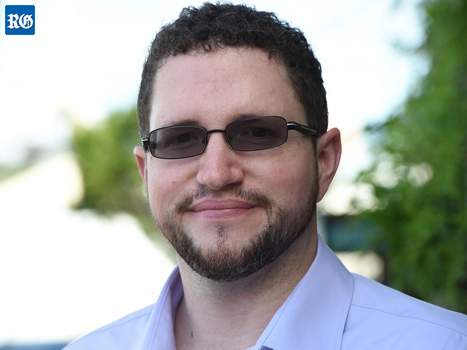Recent News
Bermuda hailed for turtle conservation roleSaturday, April 23, 2016
Green turtles have been removed from the endangered species list in Florida, with a researcher saying Bermuda played an important role.
College Class Visits Trunk Island ‘Classroom’
Tuesday, April 19, 2016
The Bermuda College’s Introduction to Biology students were given the special treat of having a ‘hands-on’ class on Trunk Island, the Bermuda Zoological Society’s “Living Classroom”.
Author Mykkal to share butterfly photos
Saturday, April 16, 2016
Author Ras Mykkal will be sharing his spectacular collection of butterfly photographs when he talks at the latest Bermuda Zoological Society lecture next week.
Stitches removed from loggerhead turtle
Wednesday, April 13, 2016
A loggerhead turtle that underwent life-saving surgery to have a rusting hook removed from her throat could be released to the wild later this spring.
Photos: Injured Turtle Has Stitches Removed
Tuesday, April 12, 2016
Daisy — the loggerhead turtle that has been residing at the Bermuda Museum, Aquarium & Zoo since she underwent life-saving surgery to remove a rusting hook in her throat three months ago — has had her stitches removed and it is hoped she can be released back into the wild in late spring/early summer.
About
GovernanceAbout Us
Newsletter
Latest News
Gift & Bookstore
Contact
General Inquiries
info@bzs.bm
Latest News
All the latest updates and news from the Bermuda Aquarium, Museum, and Zoo, one of Bermuda's leading visitor attractions!
Owain Johnston-Barnes
Published May 10, 2017 at 8:00 am (Updated May 10, 2017 at 10:20 am)

Greenrock executive director (Photograph by Akil Simmons)
A plan to relocate sea turtles in advance of the America’s Cup has sparked concerns from environmentalists about the impact on the animals’ health.
The plan is intended to protect turtles from the heavy marine traffic anticipated in the Great Sound.
However, Greenrock executive director Jonathan Starling said confining the turtles could lead to illness and stress while failing to prevent other turtles from entering the race area.
“We recognise the reasoning behind the action,” Mr Starling said.
“We are hopeful that this action will, indeed, reduce the potential for sea turtles to be injured or killed during the heightened marine activity of the America’s Cup. If it even saves one turtle that otherwise would have been killed, that’s great.
“Despite this, there are questions that need to be asked.”
The Ministry of the Environment announced on Sunday that it would be temporarily relocating sea turtles from the Great Sound to a “purpose-built ocean enclosure” near the Bermuda Aquarium, Museum and Zoo until the end of the event.
In response to the news, Mr Starling posed a range of questions about the feasibility and ecological impact of the plan, including what the impact would be on the relocated turtles.
“There are welfare considerations about keeping a concentrated number of turtles in a much smaller enclosure to what they’re familiar with,” he said.
“There is a risk of increased disease in such a situation — particularly fibropapillomatosis, a form of highly contagious tumours. There is a risk of turtles hurting each other from bites out of aggression, and general health concerns arising from the stress of being held in captivity.
“While there is some sea grass in the area where we under-stand they will be located, the quantity and quality is insufficient for a large number of turtles for two months; their diet will have to be supplemented by other foods.
“While we trust the animal husbandry skills of the workers involved, we note that the quality of food will be less than ideal compared to their natural diet and there is the risk of the turtles associating humans with food. This may lead to problems for turtles after their release.”
Mr Starling also questioned if there was a “plan b” if the proposed enclosure proves to be inadequate, and if the removal of the turtles from the Great Sound could potentially affect the ecology of the sound.
“Seagrass meadows depend on grazing to ensure their ecological dynamism. In Bermuda, the green turtles are the primary grazer of this habitat, maintaining a food-web which also supports key fisheries,” he said.
“When seagrass is left ungrazed, it loses its nutritional quality, and can even succumb to slime moulds, leading to a collapse of the seagrass meadow itself. While we’re talking only two months, there is the potential for the removal of most grazers from this habitat to have a significant impact on the ecosystem.
“Fundamentally, this issue raises some interesting ethical questions. While saving the lives of the Great Sound turtles is no doubt a positive, are there other risks to their welfare (and the welfare of the wider ecosystem) in both the short and long term? What right do we have to forcibly relocate a wild animal from their natural habitat and force them into an enclosure for a period of time, even if we’re doing it for their own safety, for the sake of a human sporting event?”
He added that Greenrock hoped that its concerns will prove to be unfounded and the turtles will not be negatively impacted, saying that the group welcomes any steps to protect biodiversity.
Questions were sent to a government spokeswoman, but a response was still pending as of last night. However, the environment ministry did respond when asked if any turtles had already been struck in the lead-up to the America’s Cup.
The spokeswoman said: “The Ministry of the Environment cannot estimate how many turtles have been harmed by watercraft, but we are intent on mitigating damage to sea turtles as a result of increased marine traffic in the Great Sound.
“We are collecting turtles from the areas where boating traffic is expected to be the highest. The movement of some turtles to Harrington Sound will help reduce the likelihood of boat interactions.”


